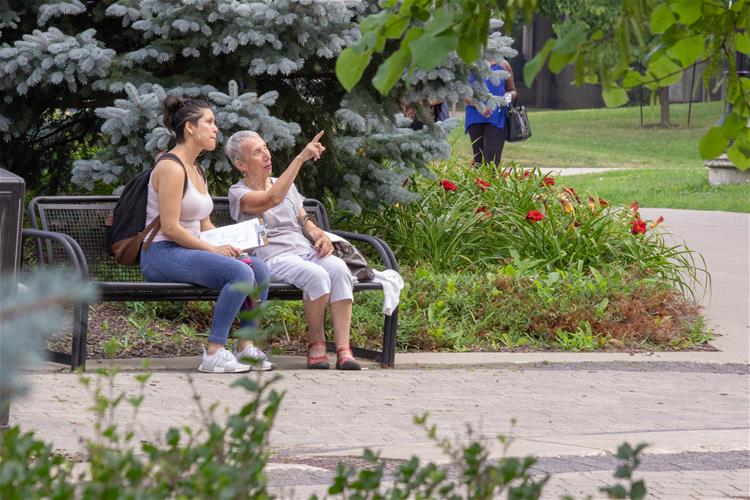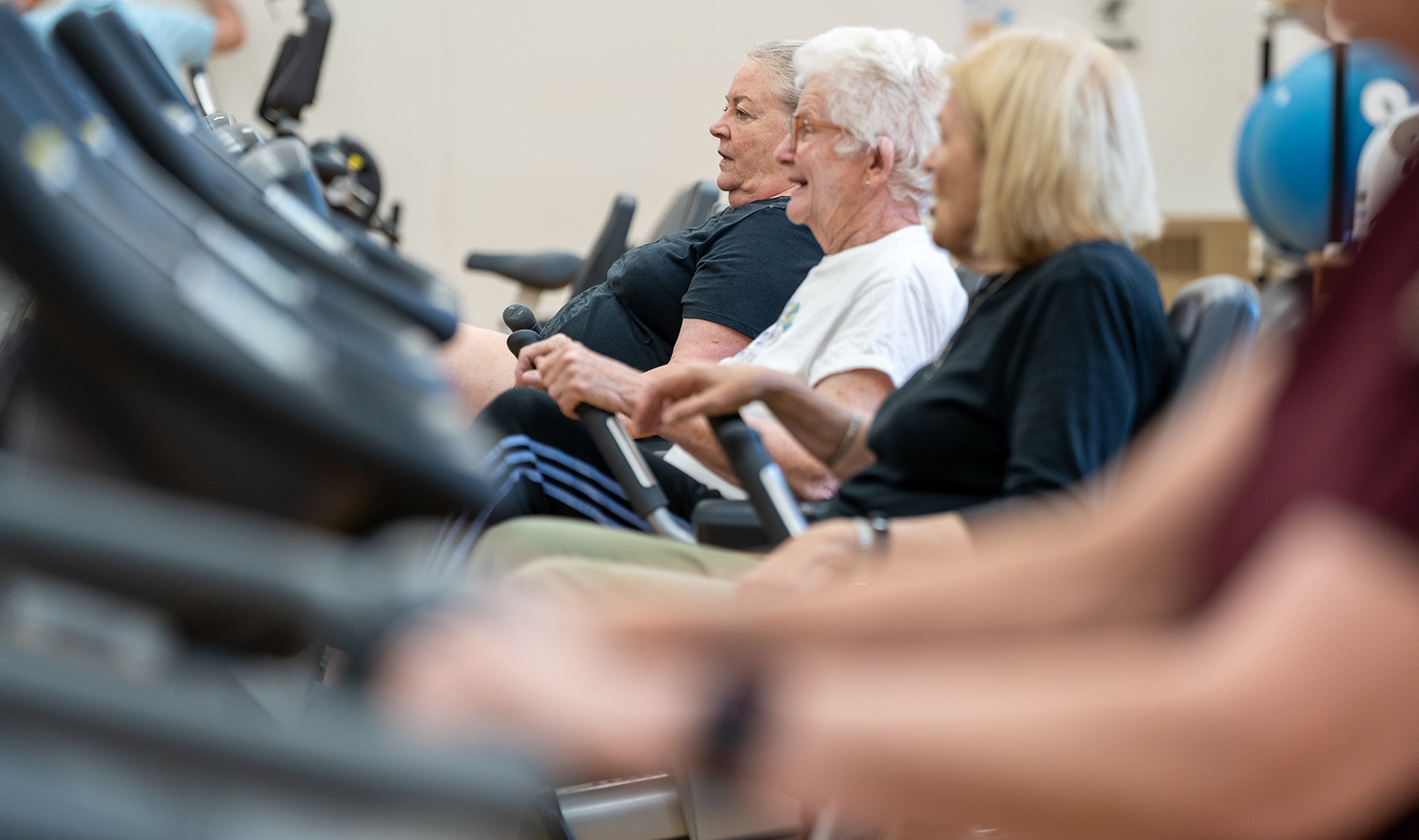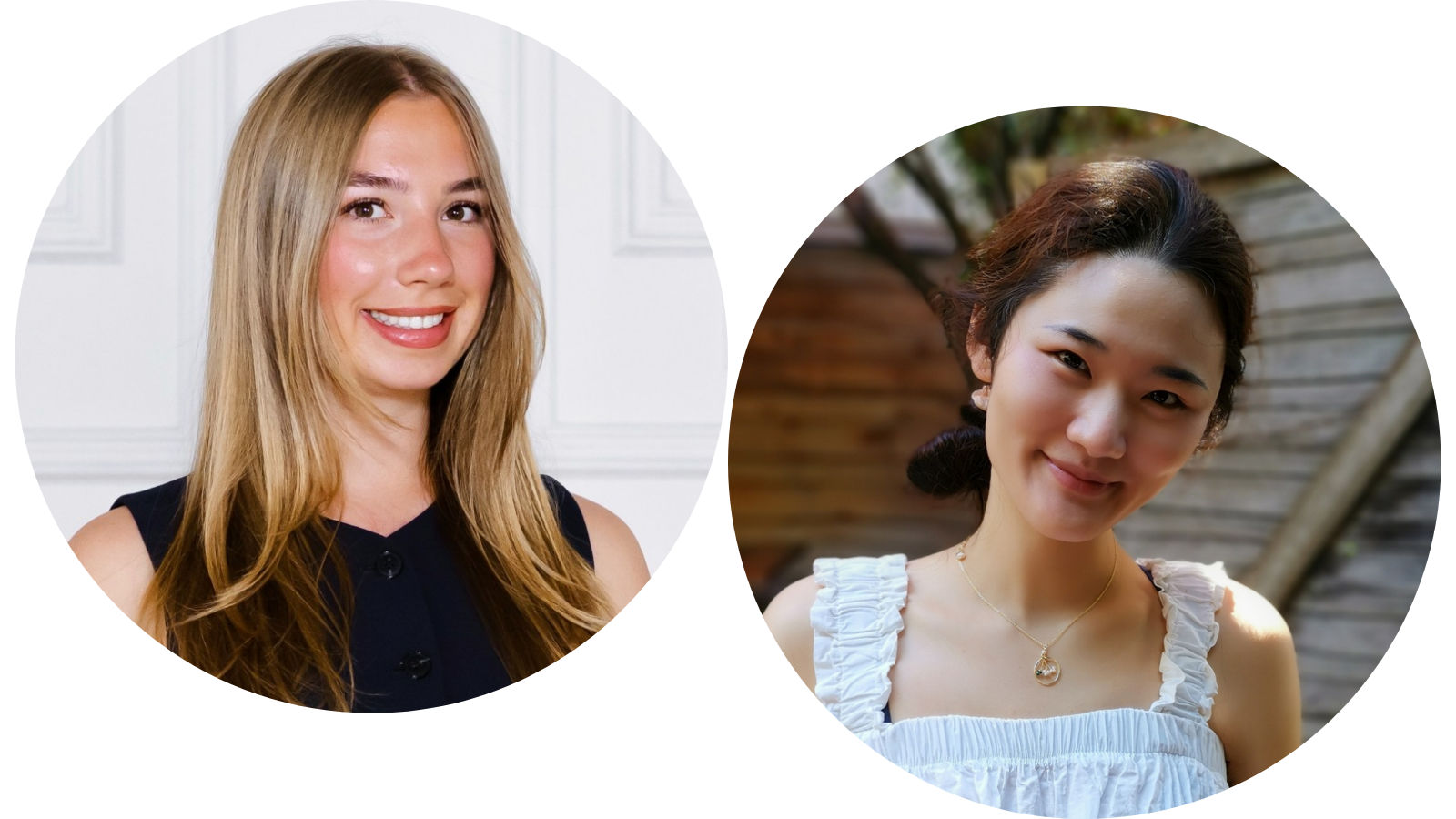
PHOTO: Elizabeth Sayes, left, and Liz Tobin participate in MIRA’s walkability study of McMaster University for older adults. The study brought older adults onto campus to learn about their perceptions of campus walkability, including features such as infrastructure, safety, and aesthetics.
Published: ​June 24, 2019​ | By Janet Bell
In October 2017, McMaster became the second Canadian University to join the Age-Friendly University (AFU) network, a global body of institutions committed to becoming more universally accessible. This week, the McMaster Institute for Research on Aging (MIRA) is releasing the Age-Friendly University Report, outlining steps McMaster is taking to improve the accessibility of the campus, understand the needs of older adults coming to campus, and encourage the participation of older adults in education, research, health, and cultural activities.
Output from the report will be presented as part of a free public presentation held on Wednesday, June 26 from 1 to 2:30 p.m. at the Hamilton Public Library (Central Location, Hamilton Room, 55 York Blvd). Presenters will include members of the McMaster Institute for Research on Aging (MIRA), McMaster Facility Services and the Faculty of Health Sciences’ School of Rehabilitation Science, all who participated in research design and collection of data.
To better understand the university’s current age-friendly status, MIRA surveyed more than 200 members of McMaster’s community (staff, faculty members, students, alumni and Hamiltonians) through online surveys and targeted focus groups. “Consulting with members of the McMaster and Hamilton community has given us great perspective on the strengths of McMaster’s current programming and research on aging, and will provide direction as we look to identify areas for growth,” said Allison Ward, Project Manager of MIRA.
“Collaboration and community engagement are two key pillars at McMaster and we are grateful to the community for their support in this project,” she added.
One focus group participant said, “You have to let us know that we are welcome to come, and there’s something to come for. Whether it’s art, music, or an open lecture, I need to know what’s available to me and that I’d be made welcome when I got here.”
Key insights from the report will be available for viewing on the day of the event. The full report highlights findings and recommendations based on McMaster’s three areas of focus: communications and outreach, accessibility and inclusion, and programming and engagement.
For more information about this free public event and to register online, click here.

